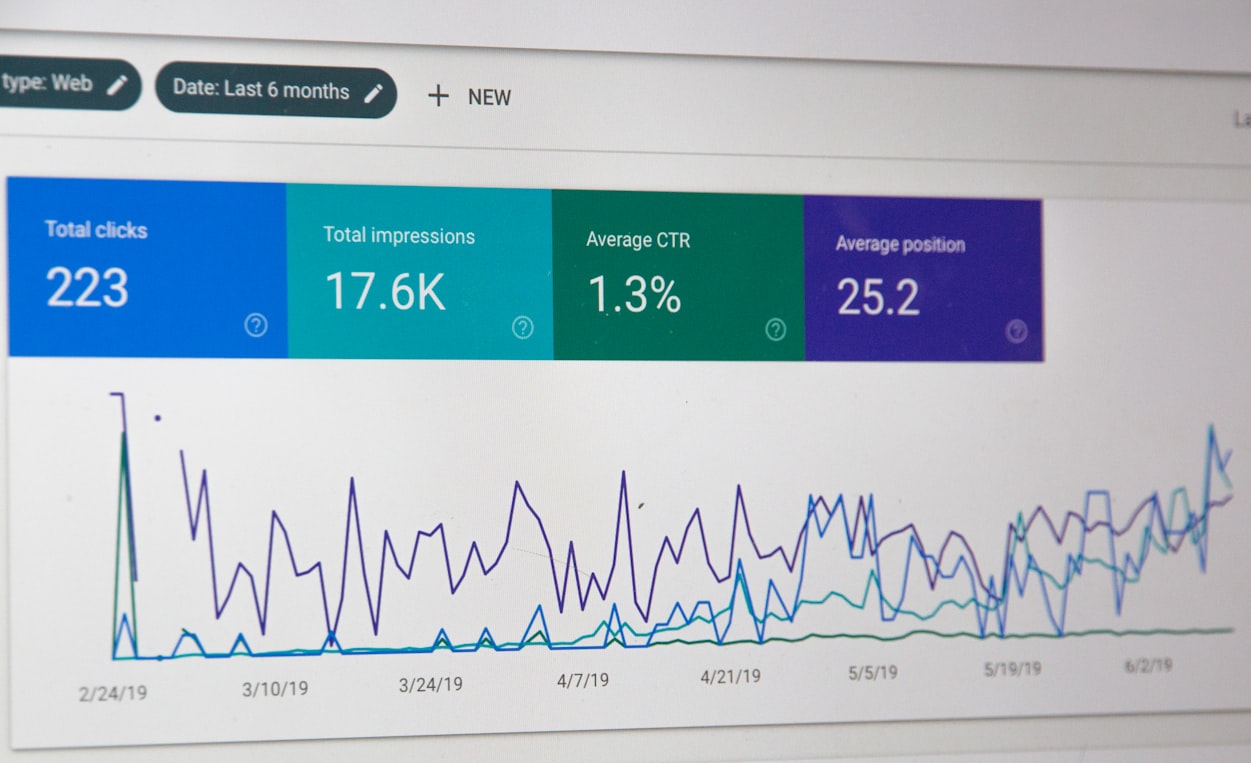Take your online presence
to the next level with M Republic.
A creative digital marketing
& web design studio
This post unveils the essence of SEO. Master the art of optimizing your online presence.

So what is SEO? Search Engine Optimization (SEO) is a term that has gained immense popularity in the digital realm. But what exactly is SEO? In simple terms, SEO refers to the strategies and techniques used to improve a website’s visibility and ranking on search engine results pages (SERPs). In today’s competitive online landscape, having a solid understanding of SEO is crucial for any business or individual looking to establish a strong online presence. In this comprehensive guide, we will delve into the fundamentals of SEO, providing beginners with a solid foundation to embark on their optimization journey.
In an era where billions of searches are conducted every day, search engines have become the go-to source of information for users worldwide. When a user types in a query, search engines like Google, Bing, or Yahoo work tirelessly to provide the most relevant and useful results. This is where SEO comes into play. By optimizing your website for search engines, you increase the likelihood of your content being discovered by your target audience.
To truly grasp the question of “what is SEO?”, it’s essential to understand its three core pillars: on-page SEO, off-page SEO, and technical SEO.
On-page SEO involves optimizing various elements within your website to improve its visibility and relevance to search engines. This includes optimizing page titles, meta descriptions, headings, URL structure, and the overall content of your web pages. By incorporating the keyword ‘what is SEO’ strategically within your on-page elements, you can enhance the keyword density and signal to search engines what your page is about.

Off-page SEO focuses on building your website’s authority and reputation through external factors. This includes earning backlinks from other reputable websites, engaging in social media marketing, and promoting your content through various online channels. Off-page SEO helps search engines determine the trustworthiness and credibility of your website, ultimately impacting your rankings.
Technical SEO deals with the technical aspects of website optimization. It involves ensuring that your website is easily accessible to search engines and providing a seamless user experience. Technical SEO factors include website speed, mobile-friendliness, crawlability, site architecture, and structured data. Optimizing these technical elements contributes to better search engine visibility and user satisfaction.
A crucial step in any SEO campaign is keyword research. Keywords are the phrases and terms users enter into search engines to find relevant information. By identifying and targeting the right keywords, you can align your website’s content with the search intent of your target audience. When conducting keyword research, it is essential to include variations of the keyword ‘what is SEO’ to ensure high keyword density. Tools like Google Keyword Planner, SEMrush, and Ahrefs can assist you in uncovering valuable keywords with substantial search volume and moderate competition.
Content is at the heart of SEO. High-quality, informative, and engaging content not only attracts and retains readers but also pleases search engines. When optimizing your content for SEO, it’s important to strike a balance between keyword usage and providing value to your audience. Incorporate the keyword ‘what is SEO’ naturally throughout your content, ensuring it fits seamlessly within the context. Remember, search engines aim to deliver the best user experience, so focus on creating content that answers users’ questions, provides actionable insights, and addresses their pain points.
User experience (UX) plays a pivotal role in the success of your SEO efforts. Search engines prioritize websites that provide a positive and seamless user experience. When users visit your site, they should find it easy to navigate, visually appealing, and responsive across different devices.
To enhance user experience, consider the following aspects:
A well-designed website with intuitive navigation makes it easier for visitors to find what they’re looking for. Organize your content logically, use clear headings, and include a search function to help users quickly locate relevant information. Remember to incorporate the keyword ‘what is SEO’ in your headings to maintain keyword density.
With the increasing use of smartphones, having a mobile-friendly website is essential. Optimizing your site for mobile devices ensures that users can access your content seamlessly on any screen size. Responsive design and fast-loading pages contribute to a positive user experience and can boost your SEO rankings.
Slow-loading pages frustrate users and lead to higher bounce rates. Optimize your website’s loading speed by compressing images, minimizing code, and leveraging caching techniques. A fast website not only pleases users but also signals search engines that your site is reliable and deserving of a higher ranking.
Enhance user engagement by incorporating relevant multimedia elements such as images, videos, and infographics. These visual aids not only make your content more appealing but also help convey information more effectively. Remember to optimize multimedia files by compressing them without sacrificing quality to maintain optimal loading times.
Guide users towards desired actions on your website by using clear and compelling CTAs. Whether it’s signing up for a newsletter, making a purchase, or sharing your content on social media, strategically placed CTAs encourage user interaction and conversion. Including the keyword ‘what is SEO’ in your CTAs can also contribute to keyword density.
What is SEO and is that it? No! To gauge the effectiveness of your SEO strategies, it’s crucial to monitor and measure your website’s performance. Fortunately, several tools can help you track your SEO progress and make data-driven decisions:

This free tool provides detailed insights into your website’s traffic, user behavior, and conversions. Monitor key metrics like organic search traffic, bounce rate, average session duration, and goal completions to assess the impact of your SEO efforts.

With Search Console, you can monitor how your website appears in search results, identify indexing issues, and analyze keyword performance. Use this tool to track impressions, clicks, and average position for specific keywords to understand their impact on your search visibility.
Platforms like SEMrush, Ahrefs, and Moz offer rank tracking features that allow you to monitor your website’s keyword rankings over time. By regularly tracking your keyword positions, you can identify areas for improvement and track the progress of your SEO campaigns.
Heatmap tools, such as Hotjar, provide visual representations of how users interact with your website. By analysing heatmaps and user recordings, you can identify areas where users spend the most time and optimize those sections for better engagement and conversions.
Not quite. SEO is a dynamic field that continually evolves with updates to search engine algorithms, user behaviour, and technological advancements. To stay ahead of the curve, it’s essential to stay informed about the latest trends and best practices in SEO. Follow reputable industry blogs, participate in forums and communities, and engage with SEO professionals to gain insights and share experiences.
Here are some strategies to keep up with the ever-evolving SEO landscape:
Subscribe to industry-leading blogs and publications such as Moz, Search Engine Journal, and Search Engine Land. These platforms regularly publish articles, case studies, and expert opinions on SEO trends, algorithm updates, and emerging strategies. Keep a pulse on industry news to adapt your SEO practices accordingly.
Virtual or in-person conferences and webinars are excellent opportunities to learn from industry experts and network with fellow professionals. Look for events focused on SEO, digital marketing, and search engine conferences like BrightonSEO and SMX to gain valuable insights and stay updated with the latest SEO trends.
Engage with SEO communities on platforms like Reddit, Quora, and specialized forums like the Moz Q&A Forum and Warrior Forum. Participate in discussions, ask questions, and share your knowledge. These communities foster a collaborative environment where you can learn from others and exchange ideas.
Connect with SEO professionals through LinkedIn, Twitter, and other social media platforms. Engaging with experts in the field allows you to gain insights, learn from their experiences, and stay updated with the latest SEO strategies. Joining industry-specific groups on social media can also provide valuable networking opportunities.
SEO is a field that requires continuous experimentation. Test different strategies, monitor the results, and analyze the impact on your website’s performance. By observing the outcomes of your experiments, you can refine your SEO approach and stay ahead of the competition.
Search engines frequently update their algorithms to improve the quality of search results. Stay informed about major algorithm updates like Google’s Panda, Penguin, and Hummingbird. Understand how these updates impact search rankings and adjust your SEO strategies accordingly to maintain visibility and keyword density.
With the rise of voice assistants like Siri, Alexa, and Google Assistant, optimizing your website for voice search is becoming crucial. Consider the conversational nature of voice queries and create content that aligns with users’ natural language. Additionally, prioritize mobile optimization as mobile devices dominate search traffic. Ensure your website is responsive, loads quickly, and provides a seamless mobile experience.
SEO is what? Well in conclusion, understanding SEO and its evolving nature is vital for beginners embarking on their optimization journey. By mastering the fundamentals, conducting thorough keyword research, creating valuable content, prioritizing user experience, and staying updated with the latest trends, you can unlock the potential of SEO and drive organic traffic to your website. We hope that this has answered the “what is SEO?” question and maybe more.
At M Republic, we are a leading digital marketing company based in Malaysia, offering a comprehensive range of services to help businesses thrive in the online landscape. Our team of experts specializes in web design, creating visually stunning and user-friendly websites that drive results, improve usability, and increase conversions. With our strategic SEO services, we focus on optimizing your website for search engines, increasing online visibility, driving targeted traffic, and ultimately boosting your business’s revenue.
Our data-driven digital marketing campaigns are designed to maximize your online advertising potential, increase conversions, and deliver a strong return on investment. Additionally, our social media services help businesses grow their online presence, engage with their target audience, and enhance brand awareness through strategic campaigns and collaborations with influential social media figures. Contact us today to discover how we can take your business to new heights in the digital realm.